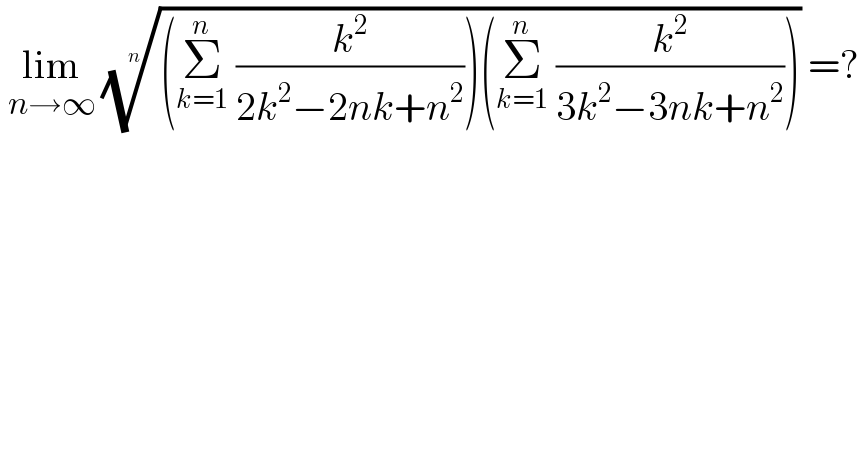
Question Number 154045 by EDWIN88 last updated on 14/Sep/21

$$\:\underset{{n}\rightarrow\infty} {\mathrm{lim}}\:\sqrt[{{n}}]{\left(\underset{{k}=\mathrm{1}} {\overset{{n}} {\sum}}\:\frac{{k}^{\mathrm{2}} }{\mathrm{2}{k}^{\mathrm{2}} −\mathrm{2}{nk}+{n}^{\mathrm{2}} }\right)\left(\underset{{k}=\mathrm{1}} {\overset{{n}} {\sum}}\:\frac{{k}^{\mathrm{2}} }{\mathrm{3}{k}^{\mathrm{2}} −\mathrm{3}{nk}+{n}^{\mathrm{2}} }\right)}\:=? \\ $$
Commented by iloveisrael last updated on 15/Sep/21

$$\:{L}={e}^{−\frac{\pi}{\mathrm{18}}\left(\mathrm{9}+\mathrm{4}\sqrt{\mathrm{3}}\:\right)} \\ $$
Answered by Jonathanwaweh last updated on 14/Sep/21

$${is}\:{not}\:{possible} \\ $$
Answered by rs4089 last updated on 14/Sep/21

$$\mathrm{1} \\ $$
